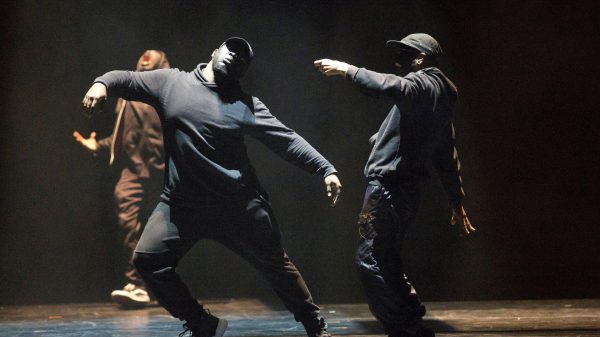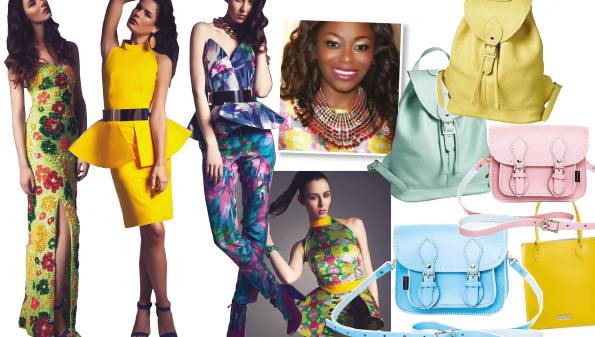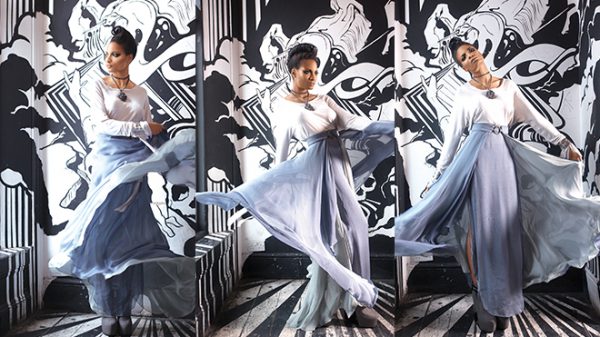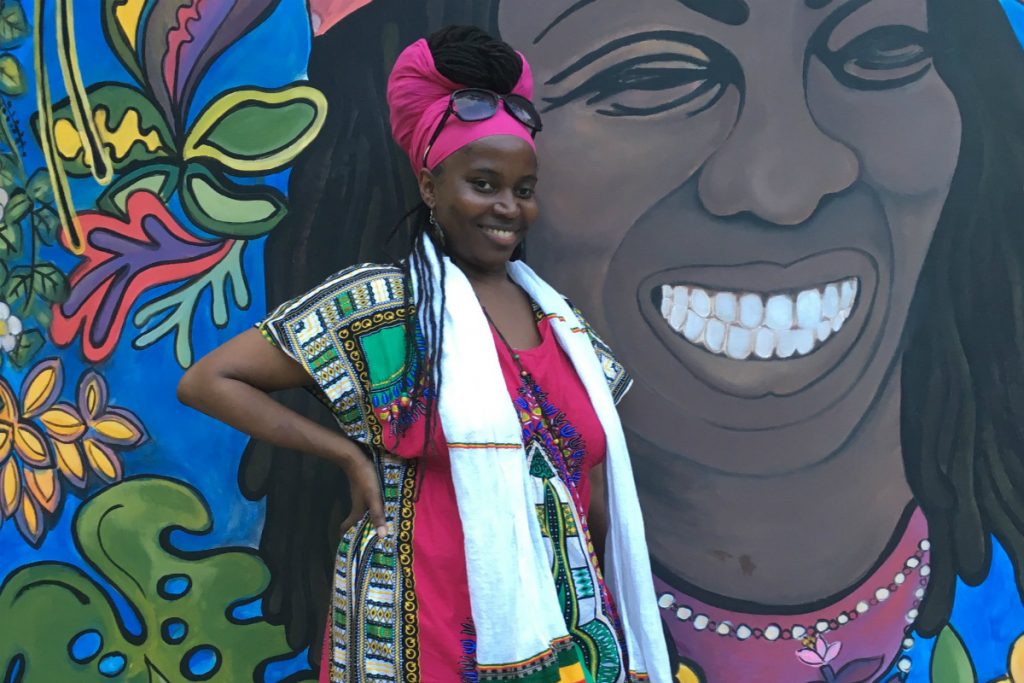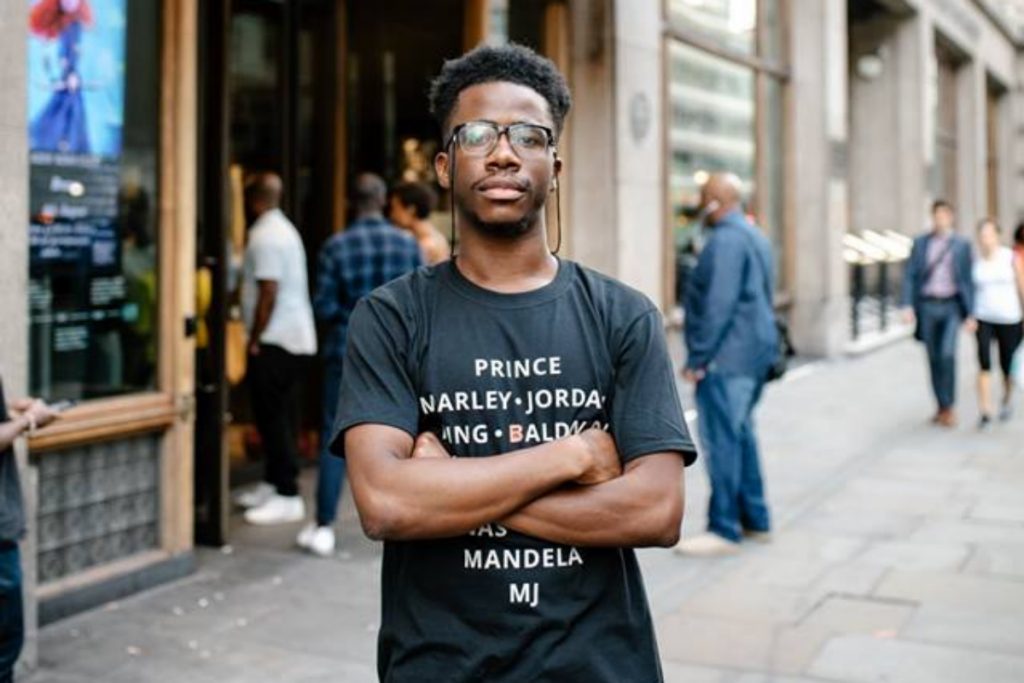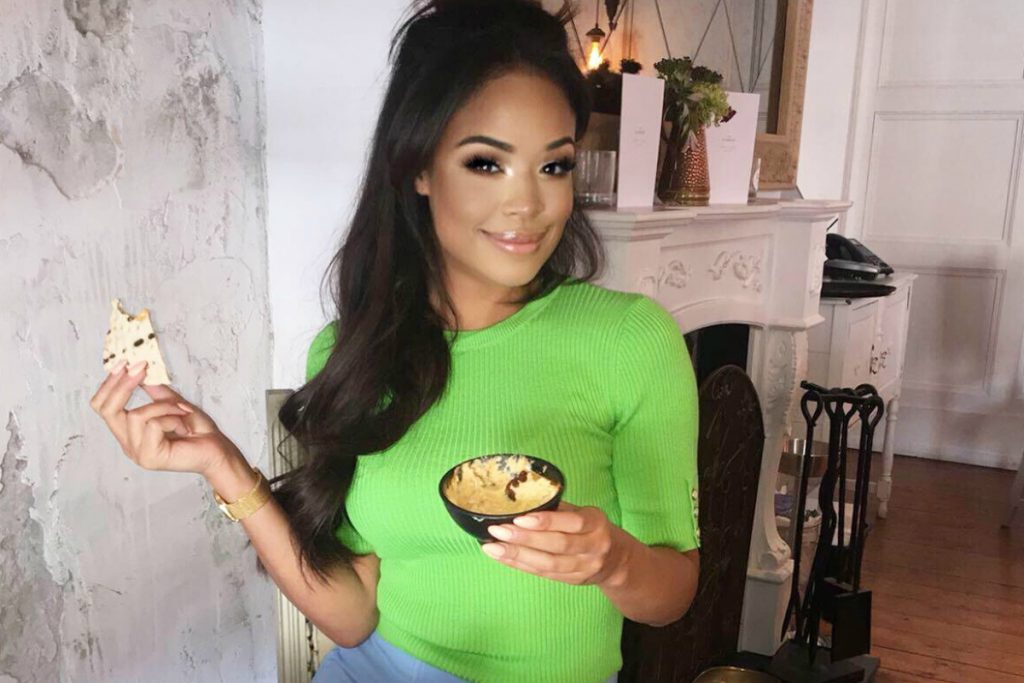Though once only associated with free-spirited or wealthy folk, veganism is one of the most successful food trends of recent history – and it doesn’t look like it’s ending any time soon. Potential future vegan Nicole Vassell investigates how three people do their own versions of veganism
If there is one key way of monitoring the changing preferences and values of a society, it’s with food. An essential part of the human experience, food is not just something that keeps us alive: it’s a passion, a method of bonding, and in some cases, it can be a marker of some of your core beliefs.
And if you use social media, watch the news, or listen to the radio, you’ll have probably guess that culinary buzzword of 2018 is ‘vegan’. Google Trends shows that a rise in searches for the term ‘vegan’ has been on a steady rise since 2012, but the past two years in particular has seen a noticeable rise in people who identify as vegan. According to a 2018 survey by comparethemarket.com, 3.5m people in the UK alone call themselves vegan ‒ a dramatic increase from numbers published only two years prior, when The Vegan Society and Vegan Life magazine reported approximately 540,000 vegans (over the age of 15) in the UK.
Described as a diet that is based on foods that are derived from plants such as fruits, vegetables, wholegrains, legumes, nuts and seeds with no animal foods or animal produce e.g. dairy or eggs, eating vegan is becoming increasingly popular. According to dietitian Karishma Patel, the motivations for living a vegan lifestyle are plenty, with health benefits being one of the major points; with a well-planned, nutritionally balanced vegan diet, she tells me, the health benefits are apparent for people at all stages of life.
‘Studies have shown that following a well-planned vegan diet can encourage weight loss helping achieve a lower body mass index and may also reduce the risk of cardiovascular disease, type 2 diabetes and even some cancers – all of which are beneficial to your health.’
As well as the diet being linked to alleviating health concerns, other factors that help explain this increased interest in a vegan lifestyle includes the spread of research exposing the environmental impact of animal farming, as well as sobering information about the conditions that some animals face.
With the wealth of information available preaching the benefits of cutting down on meat and animal products, at this stage it’d be obtuse to deny that cutting down consumption of meat can only be a good thing. However, for a long time, I’d had the mental vision of ‘proper veganism’ to be something only for middle-class, hippie-adjacent white people who had the space for farms in their back gardens, and the financial ability to buy the finest, organic products to make tasty alternatives to meaty, dairy, gelatinous ‘standard’ meals.
And this idea wasn’t aided by the memory of the first self-identified vegan that I’d encountered in my life, a classmate in sixth-form college – let’s call her Deandra. As far as I saw, she only ever ordered chips in the canteen (with baked beans on a truly special day). Sure – I liked animals just fine, and enjoy a good thinly-sliced potato fry as much as the next person; but sacrificing a life of curry goat, oxtail, and jerk chicken, just because I like cows? It was a no from me.
But with the amount of information out there now, I’ve looked deeper into a life without meat, and seen that there is definitely space for black people under the vegan umbrella; and it comes around in a variety of ways. For some, their meat-free diet is a natural development of their sense of moral justice; while being opposed to racism, sexism, homophobia, and other discriminatory practices, why turn a blind eye to the pain suffered by animals?
For others, going without animal products is a way of connecting closer to nature, and a foundational essence of what it means to be a black person by choosing to return to traditional methods of nutrition, prior to Western interventions.
To learn more, I spoke to three black people who live a vegan lifestyle about the different reasons why they choose to veer away from the Western norm of mass meat consumption. What was the deciding factor? Does the fear of missing out ever get too much? And could a carnivore like me make the change?
Ital Information
Though the trend of the moment, a vegan-like diet and lifestyle is nothing new to many communities around the world. Freelance journalist Sinai Fleary is Rastafarian, and as a core part of this belief, she follows an Ital diet which is not ‘vegan’ by name, but in essence.
‘Ital is used by members of the Rastafarian faith to describe their diet,’ Sinai begins. ‘We try to refrain from eating things we consider as “unnatural” – we see meat as dead product, as the animal has been killed, so we feel you can’t get any nutrition from it. We want to keep everything alive as possible – vegetables, fruits.’
This dedication to natural and purely ‘vital’ elements extends further than meat and dairy; for Sinai and her family, this also includes other items that people would consider vices, such as alcohol, carbonated fizzy drinks. Living in a society where plenty of these things are at arm’s reach as soon as you step out of the door, for some (including myself), this may, on first look, seem like a lot of foods (and beverages) to live without. However, Sinai has the benefit of never having experienced anything different; both of her parents were Rastas as well, and she was raised with these practices – so for her, it’s not a case of missing out, it’s just the way it’s always been.
‘My mum was an amazing cook growing up, which made it really easy for us – we never felt like we were missing out,’ she says. ‘Even with treats like ice cream, my mum found dairy alternatives, or she’d make it herself. This has helped me so much, because I’m raising children in the same way and preparing Ital food is second nature. For me, it was a natural transition as I grew up; I didn’t find anything that I’d been brought up with averse to the way I wanted to continue my life as an adult.’
According to Sinai, Ital food is one of the core components of what it means to be a Rasta, in that it prioritises using the goods of the earth, and self-sufficiency.
‘The diet plays a part in keeping a black, African identity, in that we still try to cook traditional African and Caribbean food, as naturally as possible,’ she explains. ‘Whether it’s growing your hair in dreadlocks, or wearing African clothes, or adopting African names, the Rastafarian religion is all about pushing forward with a sense of knowing your roots, and recovering what’s been lost through the transatlantic slave trade.’
In this way, nourishment in the form of natural, fresh food can be seen as a form of resistance against Western manipulation. She continues: ‘A lot of our recipes have been handed down from generation to generation, from the ways of cooking and preparing, to the utensils we use. I’ve found that so much of the origin of Rasta cooking is that it did come from Africa, or it’s the way that some of the first slaves in the Caribbean would do things. Things like that are really important and need to be documented so that we don’t lose track of the way we do things.’
Unfortunately, Sinai feels as if popular veganism of the moment has forgotten those who were doing it long before it was the new, ‘hot’ thing. ‘People have forgotten that there were indigenous communities living this way long before,’ she admits. ‘There is growth in the black vegan movement, but we’re not visual enough – and I think that’s quite sad, because there’s a lot of us with a wealth of knowledge, it’s something that many of us have been living with for generations, and has been proven to work.’
From temporary challenge, to life-long change
Health can be a catalyst for embarking on dietary practices that don’t include animal-products – and for 24-year-old Dwight Okeke, his journey began after he decided to try veganism as a form of detoxifying his body at the start of a new year. However, through further research, it wasn’t long before he decided that this would be a long-term lifestyle change, as he became more aware of the impact of what the consumption of meat produce can have psychologically, socially and environmentally.
‘Once I became vegan, I started watching the documentaries that really showed me what meat and all the products do to your body, and the environment, and for society,’ Dwight reasons. ‘Because there’s a disconnect between eating food and that food becoming the meals you eat, you don’t think about the process that got it there when it’s all packaged up – you say product names like ‘pork’ and ‘beef’ and not ‘pig’ and ‘cow’, and it allows people to disassociate an animal dying with what they’re eating.’
With meat-eating being so ingrained into popular culture and social settings, a lot of the time it’s more noticeable when someone abstains from meat. How did things change when he started going vegan for good?
‘People were surprised, because I was a big meat eater – at barbecues, chicken, burgers, I loved it all. So people didn’t see it coming. And there are times where I’ll eat out, and be really restricted; when I had to order a plain salad from a steak and burger restaurant, that was probably my angriest vegan moment ever…But in the end, it’s a worthwhile change.’
Interestingly, Dwight has also found a connection between the way he eats to his self-identification as a black man. Though not a Rasta, Dwight has been influenced by related philosophies, particularly those of late Honduran herbalist Dr Sebi; through cutting down on foods that weren’t present in Africa, before slavery and colonisation, Dwight finds himself connecting to his own blackness:
‘I’m erasing the colonial impact on my life. Obviously I can’t do it completely, but I’m getting as close as I can.’
Top of the class
Earlier, I mentioned how the increased visibility of black celebrities endorsing a vegan lifestyle had been another factor in some people taking notice. And even for Hits Radio presenter Sarah-Jane Crawford, an interaction with grime music star Jme, who is vegan, was a key moment in her consideration of whether she could leave her indulgences of chocolate and fried chicken behind.
‘I thought, wow – here’s this Grime MC from East London talking to me so passionately about veganism,’ Sarah-Jane admits. ‘It just seemed so weird to me, that somebody who’s young, from a working class background like mine, was interested in animal welfare. It was an alien concept for me; veganism was very ‘white middle-class’ in my head – and I never thought it was for me.
‘And it’s funny, because although I thought I was somebody who had empathy for others, and about equality, into feminism, against racism – I didn’t see this connection to caring about animals. I wore fur, wore leather, ate meat… I didn’t care.’
It was a combination of environmental and animal cruelty documentaries, an increasing entertainment industry endorsement, health research led her to making the transition for good. Having had a papilloma lump [a benign tumor] removed from her breast in 2014, and an operation to remove a uterine fibroid the following year, Sarah-Jane wanted to make nutritional changes to help maximise good health.
In comparison to Sinai and Dwight’s dietary choices, however, in Sarah-Jane’s personal, day-to-day practice of veganism, her identity as a black woman doesn’t directly have a connection. For her, the most pressing social factor that has impacted the way she sees food is class, and the ways in which that culture can affect how you see food.
‘I didn’t grow up on quinoa, or come from a bohemian background,’ she explains, ‘I had a roast dinner on a Sunday, and I’d go to McDonald’s and KFC – fast food; easy stuff. If you’ve grown up working-class, a lot of the time you will have grown up congregating around cheap chicken shops. The way you eat is about education, poor areas and the types of shops that cater to these places. We need to find a cost-effective way to come out of that socialization that says that in order to eat cheaply, it has to come from these places.’
Since transitioning to a vegan lifestyle, Sarah has developed a passion for discovering easy ways to still get the treats that she enjoyed so much, but without the meat and dairy additions. Earlier this year, she launched her own app, Viappi, that locates users to their nearest vegan or vegetarian-friendly restaurant at any given time, as well as providing at-home recipes – and she wants to promote the knowledge that there are many ways to eat vegan:
‘For me, there is a gap in the market for diversity in veganism. It’s about showing people that they can come from any walk of life, and be vegan. It doesn’t have to be all beans, all the time – sometimes, an ackee pattie can do the trick!’
Going the vegan way?
After hearing the passionate, and different ways that people go about their lives without consuming any product that comes from animals, I’ve never felt more understanding as to how a vegan lifestyle can work in the lives of people like me. Health benefits, a sense of reconnection to blackness, good for the environment, and better for animals? Sounds great!
Of course, this is not a judgement on anyone who doesn’t live this way – as mentioned above, access to food might make it more difficult to choose diets. But through these conversations, I’ve learned that though not the most prominent in wider veganism conversations, black people definitely can be vegan and thrive. In some cases, this way of life can open up really interesting ideas of who you are; and that’s pretty powerful. But whether or not it has a direct effect on you, there is space for everyone in the global movement. Whether I’ll go the whole hog (excuse the pun) and do it myself is still to be seen – but at least I know that it’s more than possible.
Thinking of going vegan? Here are three top tips from dietitian, Karishma Patel:
- Carefully plan your meals, ensuring they are nutritionally adequate and well-balanced. It is important to note that because something is labelled ‘vegan’, it is not automatically healthy – so meals require planning.
- Introduce and experiment with new foods weekly, to broaden the variety of plant-based foods.
- Seek professional advice regarding certain nutrients or nutritional supplements.
For more information on Sarah-Jane Crawford’s vegan restaurant finding app, visit viappi.co.uk; catch her regular programme on Hits Radio, Monday-Thursday, 7-10pm.






